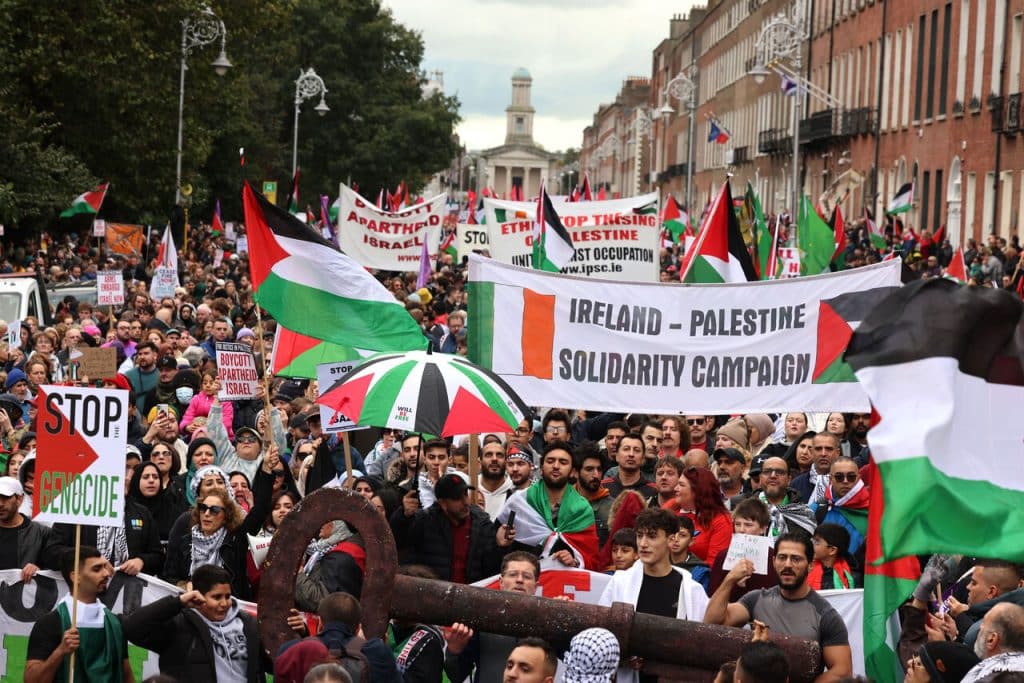Irish workers walk out of the workplace to protest Israel’s continued crimes.
In this protest movement, organized at the initiative of the Irish Trades Union Congress, workers across the island of Ireland announced their protest in the form of a campaign of “workplace actions” including coordinated walkouts, minutes of silence and short awareness sessions on the situation in Gaza.
According to Irish sources, employees came out from behind their desks and classrooms, formed a circle in front of the workplace building or in the courtyard, held placards in support of Palestine and showed their opposition to the continuation of the war and the siege of the Gaza Strip by remaining silent, reading short statements or holding prayers and memorial services. The Trades Union Congress had asked participants to record these actions and publish them on social media so that the scope of this movement could be seen from the inside of the workplace.
In Derry, Northern Ireland, the city’s Trades Union Council had earlier called on workers to walk out of their workplaces and stand in the streets around their workplaces. The council described the “Workplace Day of Action” as a continuation of the wave of Irish unions’ participation in marches and rallies in solidarity with Palestine, saying: “This time the workplace itself must become a scene of protest.”
In the field of education, teachers’ unions played a prominent role in the movement. Thousands of teachers and staff in educational institutions declared their support for the Palestinian people by holding silences in schoolyards and classrooms, as well as short meetings in the staff room and group photos with slogans such as “immediate ceasefire” and “free Palestine.” The National Union of Teachers of Ireland said the teachers’ action was part of their historic commitment to defending human rights and opposing the occupation.
In addition to educational organizations, large labor unions such as “Sipto” and “Forsa” have also issued internal bulletins and public announcements, calling on their members to join this protest movement and take group photos in front of offices and workshops, hold short meetings on the situation in Gaza, and discuss “economic solidarity” tools, including boycotting the illegal settlements of the Zionist regime and pressuring the government to cut off cooperation with complicit companies. Forsa has emphasized that Irish workers do not want to be in a position where their jobs are indirectly tied to the continuation of the occupation and siege.
In explaining the context of this action, the Irish Trade Union Congress referred to the attack by the Zionist regime’s military on the office of the General Federation of Palestinian Trade Unions in the city of Nablus, calling it a direct attack on labor organizing. The organization’s statement states that Palestinian workers are simultaneously victims of bombing, siege, and suppression of trade unions, and that the duty of labor unions in other countries is to go beyond issuing statements and put real pressure on governments and companies to end their complicity in this situation.

